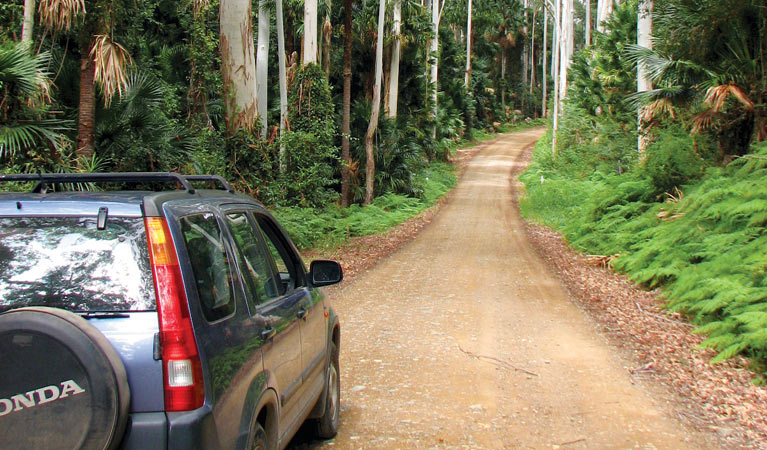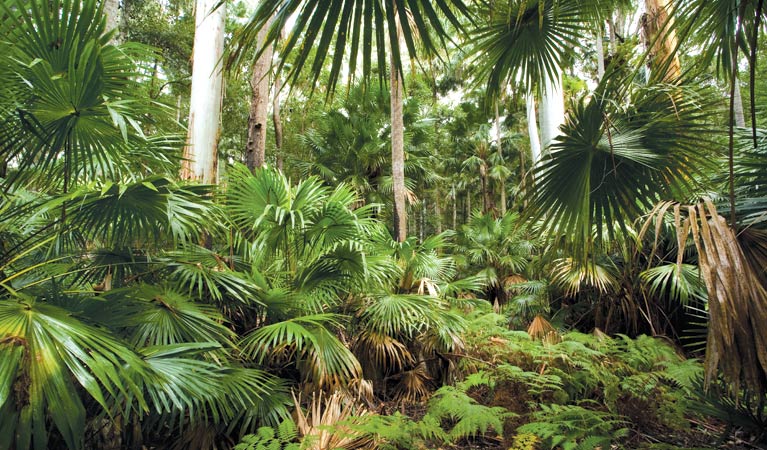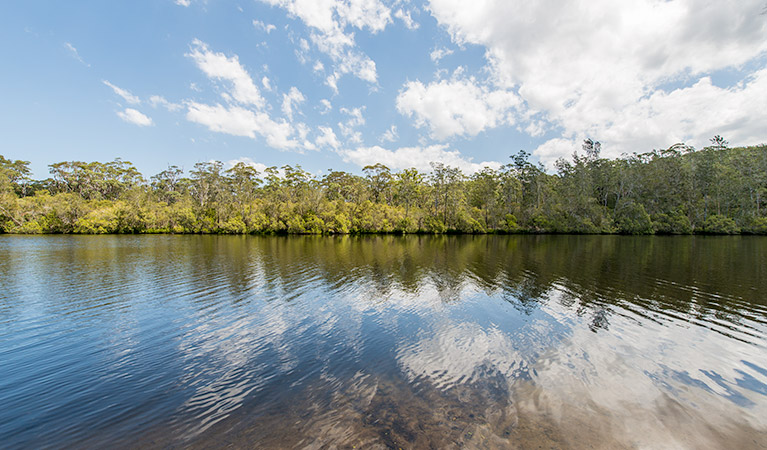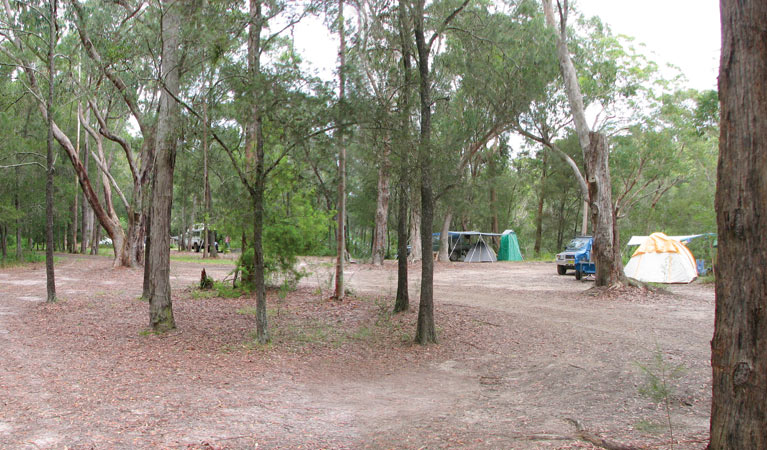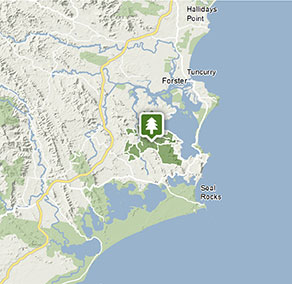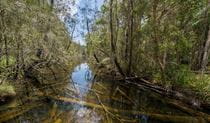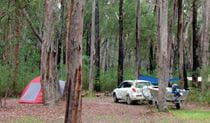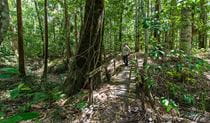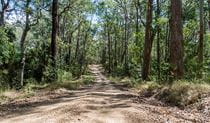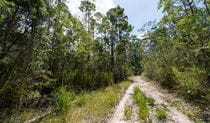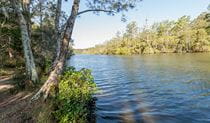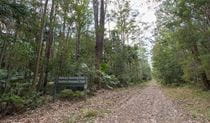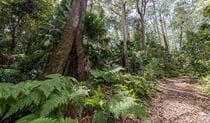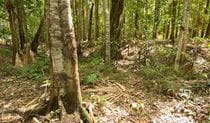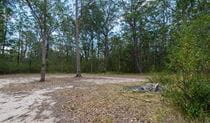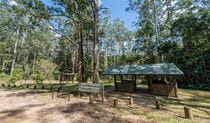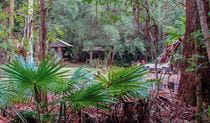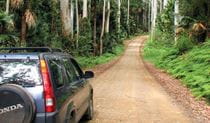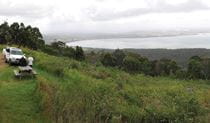Wallingat National Park
Overview
On the mid-North Coast of NSW, Wallingat National Park, with its varied forest and swamp landscapes, offers hiking, touring, birdwatching and camping in a coastal locale.
Read more about Wallingat National Park
Here, on the Mid North Coast of NSW, the Pacific Ocean meets forest. At Whoota Whoota lookout, one of Wallingat National Park’s most visited attractions, you’ll be overwhelmed by the beauty. Explore the park further and you’ll see stands of straight, tall flooded gums. At Sugar Creek, there are also stands of cabbage palms, filled with the sounds of Wallingat’s native birdlife. Pack the car and explore what this great park has to offer for a few hours. There’s camping at Wallingat River, and a picnic area at Sugar Creek.
A network of unsealed roads throughout the park allows you to discover its best features. Accessible by 2WD in dry weather, you can also explore them by mountain bike or horseback. There’s great fishing in the river and lake, and you can swim when the weather is warm. Keep your eyes peeled for kangaroos and wallabies, as well as some of the 200 species of birds that make Wallingat their home.
Highlights in this park
Subscribe to Naturescapes
Subscribe to our Naturescapes e-newsletter which is packed with the latest information, experiences and events in NSW national parks. Your next park adventure starts here.
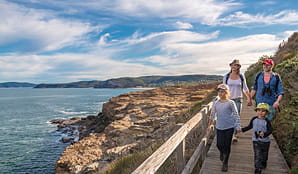
Saving Our Species program
Australia is home to more than 500,000 animal and plant species, many of which are found nowhere else in the world. Saving our Species is a statewide conservation program that addresses the growing number of Australian animals and Australian native plants facing extinction.

General enquiries
- National Parks Contact Centre
- 7am to 7pm daily
- 1300 072 757 (13000 PARKS) for the cost of a local call within Australia excluding mobiles
- parks.info@environment.nsw.gov.au
Contact
- in the North Coast region
Wallingat National Park is always open but may have to close at times due to extreme weather or fire danger.
-
-
Booti Booti Office
02 6591 0300
Contact hours: Monday to Friday, 8.30am to 4.30pm. Closed public holidays. - The Ruins campground, Booti Booti National Park, 4374 The Lakes Way, Booti Booti 2428
-
Email: npws.manninggreatlakes@environment.nsw.gov.au
-
Booti Booti Office
In this park:
Things to do (12)
- 4WD touring (1)
- Aboriginal culture (3)
- Birdwatching and wildlife encounters (7)
- Canoeing/paddling (1)
- Cycling (6)
- Fishing (1)
- Historic heritage (1)
- Horse riding (1)
- Picnics and barbecues (4)
- Road trips and car/bus tours (2)
- Sightseeing (2)
- Swimming (1)
- Walking (6)

